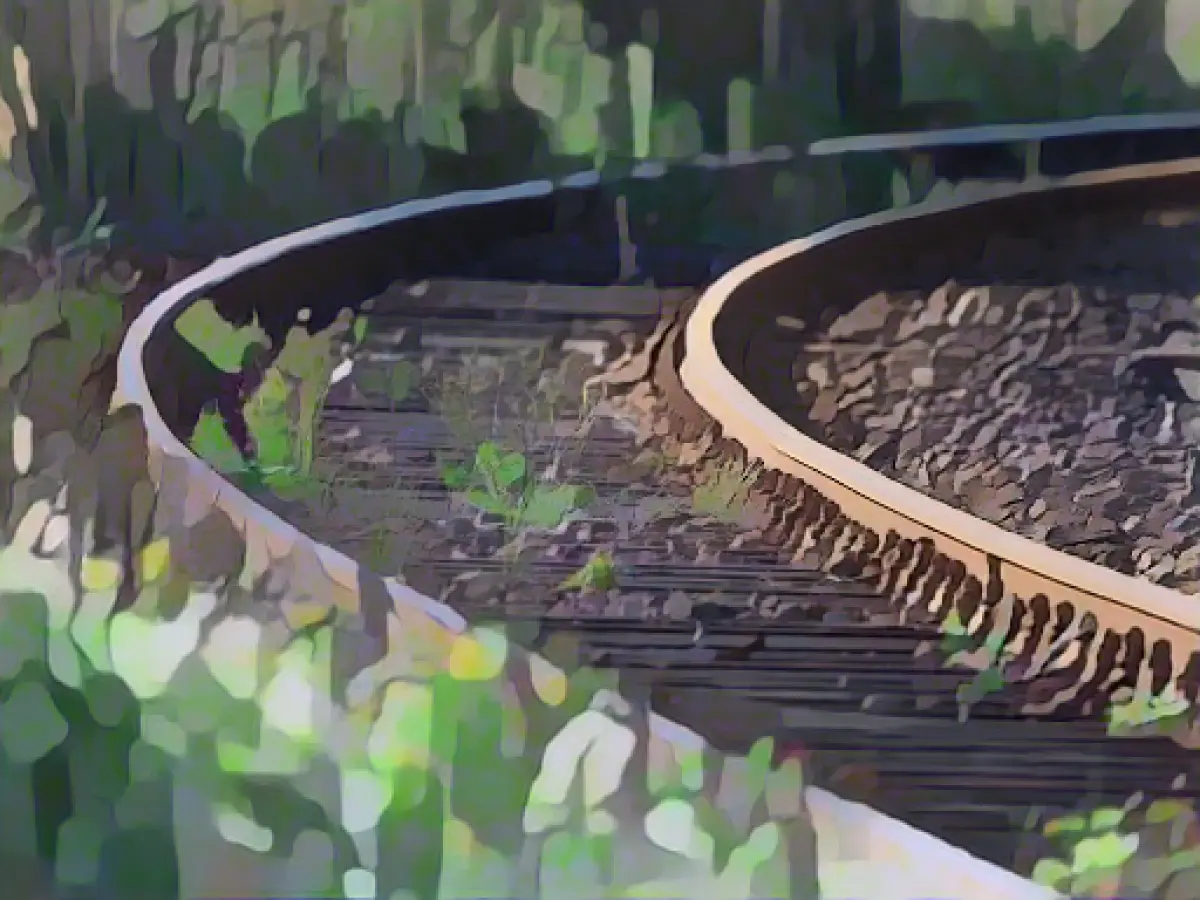Associations see rail funding at risk
Interlockings from the imperial era, missing overhead lines, overloaded routes - the federal government has announced investments of almost 40 billion euros for the coming years to make Germany's rail network fit again in many places.
A considerable proportion of these funds were to come from the federal government's Climate and Transformation Fund (KTF), a special fund that is economically separate from the core budget. However, following a ruling by the Federal Constitutional Court this week, this pot is significantly smaller - and the search for alternative sources of funding has begun.
"The Federal Government must now quickly clarify how it intends to provide the billions earmarked for the rail infrastructure elsewhere," said the pro-rail association Allianz pro Schiene on Friday. Chief Executive Dirk Flege called for an end to numerous environmentally harmful subsidies, which could then flow into the railways.
Demand: review company car and diesel privileges
"If the company car and diesel privilege were abolished and a tax on kerosene were also introduced, there would be additional billions for the projects that can no longer be financed via the Climate and Transformation Fund," he said.
The German Transport Club, which campaigns for socially and environmentally friendly mobility, expressed similar views on Friday. "In the search for this money, environmentally harmful subsidies such as the company car and diesel privilege must be put to the test, as well as Mr. Wissing's sprawling new freeway construction and expansion projects," said Alexander Kaas Elias, spokesman for the association's rail policy.
Specifically, it is about 12.5 billion euros that should flow from the KTF for rail financing in the coming years. The fund comprises a total of 200 billion euros. Around 60 billion euros of this came from undrawn corona loans that the federal government had subsequently reallocated for climate protection and the modernization of the industry and put into the KTF. This is exactly what the Federal Constitutional Court prohibited this week. As a result, 60 billion euros are now missing from the fund.
General refurbishment of busy routes
This also affects important projects and plans in the Federal Ministry of Transport's (BMDV) portfolio, the ministry announced recently. "These include, above all, funds for the refurbishment of the railroads, but also for charging infrastructure or climate-friendly commercial vehicles." How this gap is now to be closed is "the subject of national consultations".
The federal government pledged almost 40 billion euros for the railroads in the coming years in mid-September. In addition to the funds from the KTF, other sources were planned: 11.5 billion euros will continue to come from the BMDV's individual federal budget. This is to be financed primarily from an increase in the truck toll. A further 12.5 billion euros are to come from an increase in equity at Deutsche Bahn, while the Group itself must contribute three billion euros.
The Group's most important project in the coming years is the general refurbishment of busy rail corridors, which should improve the high level of unpunctuality in long-distance traffic in the medium term. Work will start next summer on the so-called Riedbahn between Frankfurt and Mannheim.
The pro-rail association Allianz pro Schiene advocates for the federal government to reconsider environmentally harmful subsidies, like the company car and diesel privileges, as potential sources of funding for the rail network, given the reduced size of the Climate and Transformation Fund. With the abolition of these subsidies, additional funds could be allocated towards rail infrastructure projects that are currently underfinanced.
The demand for a review of the company car and diesel privileges is echoed by the German Transport Club, which also suggests examining other environmentally harmful subsidies and expansion projects, such as those led by the federal transport minister, to secure necessary funding for rail network improvements.
Source: www.dpa.com








